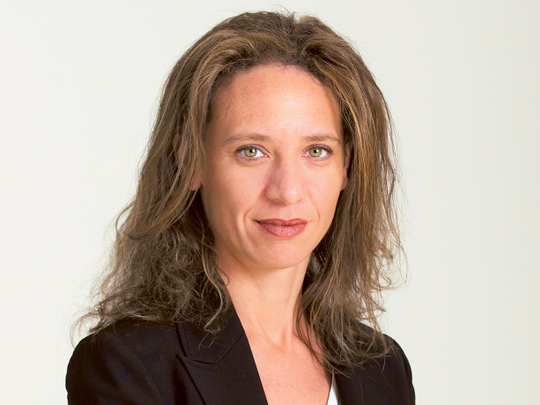
DUBAI: GE’s 2016 Global Business Innovation Barometer, released on Tuesday, paints a picture of a UAE business scene increasingly prepared for a digital future.
And for the first time, UAE start-ups and entrepreneurs are starting to make their presence felt.
The report — the fifth by the firm — surveyed innovation officers from 100 medium-sized firms in the UAE, and 2,748 worldwide, across several sectors, including manufacturing, fast-moving consumer goods (FMCG), telecoms and more. UAE interviews were conducted in Arabic.
Rania Rostom, GE’s chief innovation officer for the Middle East, North Africa and Turkey, said the role of entrepreneurs and start-ups in driving innovation in the UAE has increased fourfold compared to last year. and is now approaching global levels.
“I think that’s interesting because it’s about inclusiveness. In the UAE findings, the answers do correlate around the government being the strongest driver in terms of pushing innovation, and the belief that the government has a strong role to play, but it’s nice to see that other trend emerging. Fourfold in a year is powerful.”
She attributed the growing role of start-ups to word of mouth about their innovative solutions within the UAE business community.
“We’re in the ecosystem together,” she said. “There all these start-ups with amazing ideas and products and services and they’re trying to find a home either to market sell or co-create. I see more appetite from customers’ and partners’ sides to embrace that. As an industrial technology company we want the best ideas and if they’re coming from the entrepreneurs’ side, great.”
Of the executives interviewed, 72 per cent felt lack of talent or inadequate skills hindered their ability to innovate.
However, 74 per cent of the executives felt the UAE’s education system would able to develop the right skills in future — significantly higher that the global average of 59 per cent.
“Findings show that the government is playing a strong role in the education sector in terms of embedding innovation,” said Rostom, noting that the perceived talent gap was primarily about numbers, not quality, of candidates.
“Our question around what they would like to see more in the future [from applicants], it’s the critical thinking, the risk-taking, the adaptability, because everything in technology is going to be more platform and systems and innovation.”
The desirability of these attributes is a new development, Rostom said. “Go back even five years ago and these were not attributes we wanted in the workforce,” she said. “You want someone who’s deep but can think horizontally.
“We want to break the silos. What we’re saying, as GE, let’s go outside our walls. We’re great but we don’t have all the answers. We want to bring the outside in, and we want to do it through collaboration and co-creation and we want the talent that is able to think through our customers, challenges and issues in that way.”
This trend was something Rostrom saw more widely in industry.
“There is an appetite to think not just about new products and services but new markets and collaborative co-creation, which then brings into the discussion things like what happens with revenue streams and IP. There is a stronger and positive trend in the appetite to do more of that.”
The report highlighted that a growing number of UAE executives — 58 per cent, compared to 47 per cent in 2014 — recognised the strategic value of data and analytics, but this was still slightly below the global average (61 per cent). However, 85 per cent of those interviewed in the UAE recognised “digital Darwinism” in play, feeling that more and more companies faced obsolescence if technology developed faster than they could cope.
“The data points on real digital readiness and advanced manufacturing just show that these technology trends we’re seeing everywhere in the world, and can really help leapfrog some industries, are ready to be embraced, so I think that’s the other positive trend I’m seeing in the report.”
In the future, she said she hoped to see the trends towards co-creation and collaboration accelerate industrial growth. “What does it take to do that?” she said. “It takes being experimental with these new technologies, to see how we can bring digitisation into manufacturing, to look at how analytics can increase proficiencies, We’re going to need to try some things — we all need to be bolder and take the risks together to drive it faster.”












